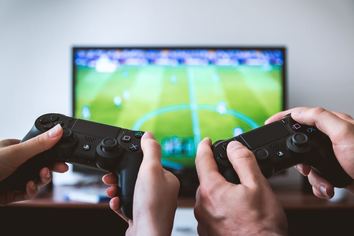 There has been quite a bit of press over the past few years regarding binge drinking. In the United States, The National Institute on Alcohol Abuse and Alcoholism defines binge drinking as consuming so much alcohol in a two hour period that your Blood Alcohol Content (BAC) is at .08. For men, this is approximately 5 drinks and for women, about 4 drinks during a two hour time period. When we hear the term binge drinking many of us think of college students as the primary population of those who consume alcohol in this fashion. The National Institute on Alcohol Abuse and Alcoholism reports that 37.9 percent of college students ages 18–22 reported binge drinking in the past month compared with 32.6 percent of other persons of the same age. Here are some interesting facts about binge drinking from the CDC Website: 1. Binge drinking is most common among young adults aged 18–34 and least common in the 65+ age group. 2. One in six adults binge drinks approximately 4x's per month, consuming about 8 drinks per binge. 3. Adults 26 and older are involved in 70% of binge drinking episodes. 4. 90% of the alcohol consumed by underage drinkers involves binge drinking. 5. More than half of the alcohol consumed in the United States involves binge drinking. 6. Binge drinking is more common among those whose household income is $75,000 or higher. 7. Most people (90%) who binge drink are not alcohol dependent or alcoholics. Is binge drinking a rite of passage when in college or has it become an epidemic? It appears that binge drinking is not just for college students. Some college students are known to binge drink, but they are not alone. Based on the information from the CDC, binge drinking spans across all age groups, including underage drinkers as well as the elderly populations. It is fascinating that there is a household income associated with binge drinking, when it does span across all socioeconomic classifications. Is it an epidemic in college or is it that over time, college drinking has received more media attention when compared to other populations? Are there more consequences associated with college binge drinking such as injuries, assault and death? Alcohol use and abuse spans across all socioeconomic classifications and age groups and it looks like binge drinking is following suit. Disclaimer: This blog is for informational purposes only.
6 Comments
We do not always eat because we are hungry or to feed our body. Many of us eat because we are bored, sad, worried, lonely or stressed. It is not only negative emotions that cause us to emotionally eat. How many times have we celebrated with a special dinner and given children treats or ice cream in celebration? Eating to feed your emotional needs is not a healthy behavior and can lead to weight gain and sabotage when trying to lose weight.
Insight is very important in the fight against emotional eating. The first step to stopping this behavior is finding your triggers. Once you find the triggers to your emotional eating, you can find a replacement behavior. Some replacement behaviors are: walking, writing, drawing, playing an instrument, exercise, meditate or anything that you enjoy doing other than eating. It is also equally important to start feeling and processing your emotions. The suppression or avoidance of feelings is what is leading you to emotional eating. 1. Food Diary: Start a food diary and write down the time of day and everything you eat throughout the day. Look for patterns in your eating, do you usually eat around 10 am because you are bored, or have a gap in your work schedule? Look at the times of day and what is going on at that time to see if there is a pattern of behavior and what the emotion is that you are feeling that is driving you to eat. 2. Manage your Stress: Managing your stress can make a big difference in stopping emotional eating. Start an exercise program, deep breathe, try Yoga and/or meditation. 3. Suppressing Emotions: After having a bad day, fight the urge to go home and over eat, try calling a friend or family member to discuss the day and the feelings that you are experiencing. Trying to numb or suppress the feelings and feel better through food is not a healthy choice. 4. Reality Check: Ask yourself "Am I hungry?" before you eat. If the answer is yes, make a healthy food choice. If the answer is no, think about why you want to eat and what is triggering this desire for food. 5. Healthy Snacks: Instead of reaching for that bowl of ice cream, reach for fruit. You will still have the sweet taste and it is much healthier for you. Cut up some fruit and veggies so they are easily accessible and ready to eat when you want a snack. This way you can just grab some carrot sticks when you want a snack and do not have to start cutting and chopping. The idea is to find alternatives that are satisfying to you. Using food occasionally to feel better when you are down or as a way to celebrate is okay. When food becomes the main self soothing tool, the behavior is problematic. Stopping emotional eating is not something simple or easy to accomplish. It takes time, commitment and perseverance. If you are finding that it is becoming very difficult for you to stop this behavior, and you are feeling overly emotional seek support from a professional who can assist you with your goals. Disclaimer: this blog is meant for informational purposes only and is not meant to be a replacement for therapy or treatment.  There has been quite a bit of controversial press regarding internet game addiction. More research is showing that people can become addicted to digital gaming. The World Health Organization (WHO) has defined Gaming Disorder in the draft revision of the International Classification of Diseases (ICD-11), Here is a link to WHO Gaming Disorder on the World Health Organization website. WHO states "for gaming disorder to be diagnosed, the behaviour pattern must be of sufficient severity to result in significant impairment in personal, family, social, educational, occupational or other important areas of functioning and would normally have been evident for at least 12 months." The DSM-5 (diagnostic manual for psychiatrists) was unveiled in May 2013 and it has Internet Gaming Disorder as a condition that requires more research, before it can be added as a disorder that can be diagnosed. Here is a link to Internet Gaming Disorder on the DSM-5 website. If more research is done, this condition may very well become a diagnosis in the next revision of the DSM. Some professionals in the field feel that internet game addiction is a fad and not a real phenomenon. Having worked with adolescents and young adults, I have seen my share of internet use issues. Some were just issues and were easily remedied, others were fitting an addictive pattern of behavior. If this was a condition with a diagnosis, professionals working with this population would be using it as a primary or secondary diagnosis. When the use of internet games starts to seriously impede your life functioning, you have a problem in this area. Some people report playing digital games as a stress reliever, a way to unwind at the end of a work/school day, or a way to escape from their life and the reality they face every day. Some people enjoy the fantasy world much more than reality. Some symptoms of gaming addiction include; declining grades (students), increased gaming in the face of negative consequences, focusing on gaming and not other activities you enjoy, lying about game use and feeling anxious when unable to play. There is usually an underlying issue as to why you are using internet games so frequently. Here are some things you can do if you or a loved one is spending too much time gaming:
If you find that stopping digital gaming is an overwhelming and daunting task, seek professional help. A psychologist or mental health professional can assist you with a treatment plan, provide support and address underlying mental health issues. Disclaimer: This blog is for informational purposes only and is not meant as a replacement for treatment or therapy. |
AuthorDr. Deb is a successful Psychologist who practices in New York City. She is an Anxiety Specialist who works with adolescents and adults providing both individual and couples counseling. Categories
All
|
NAVIGATION
|
CONNECTSHARE THIS PAGE |
CONTACT MeDebra O'Shea, Psy.D PLLC
14 Penn Plaza New York, NY 10122 (347) 480-8095 |
LOCATIONWebsite by TherapyPrime
|
©2017 Dr. Debra O'Shea, Psy.D, PLLC

